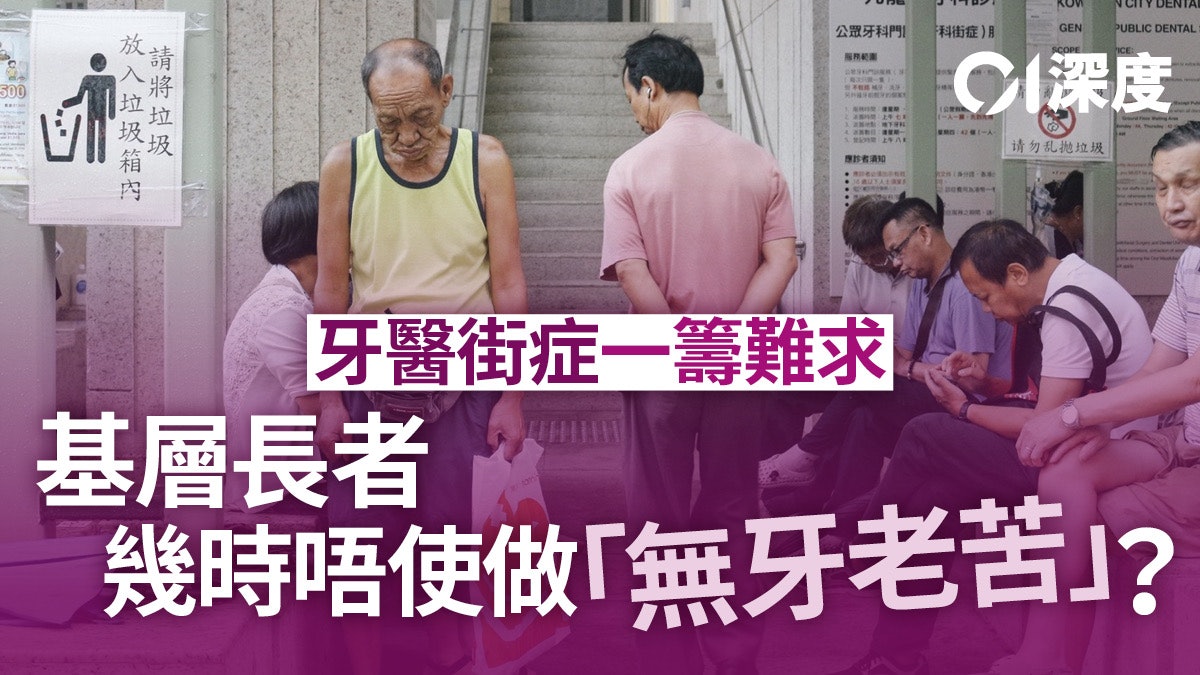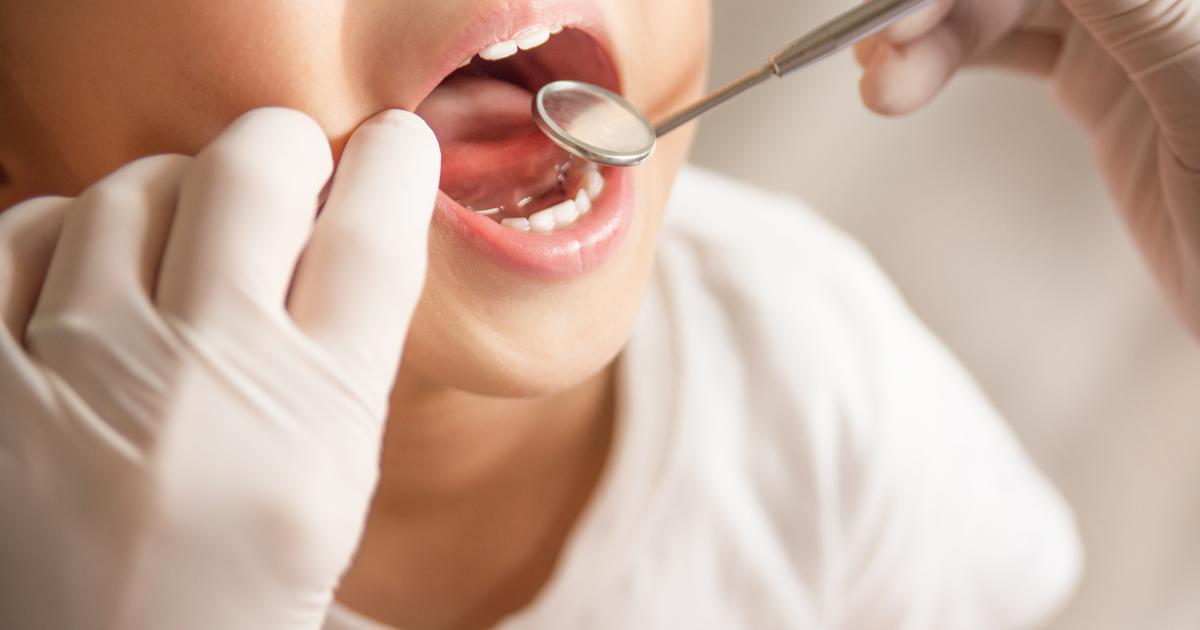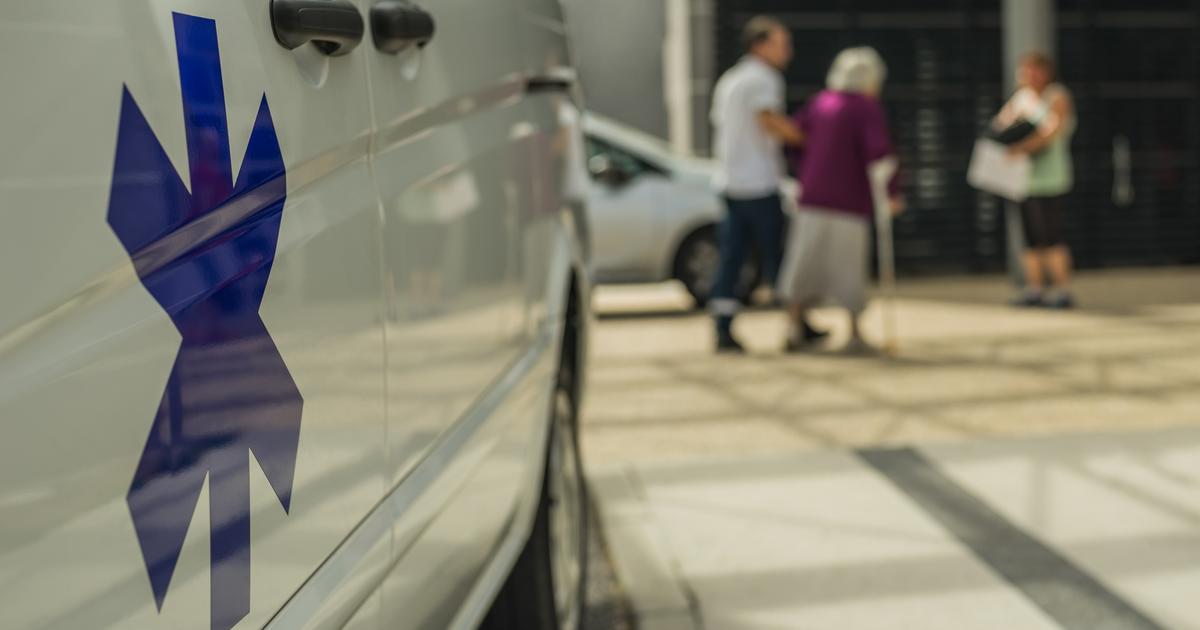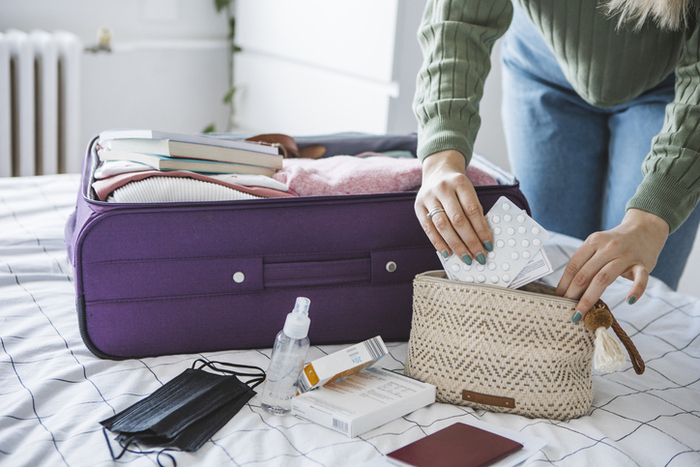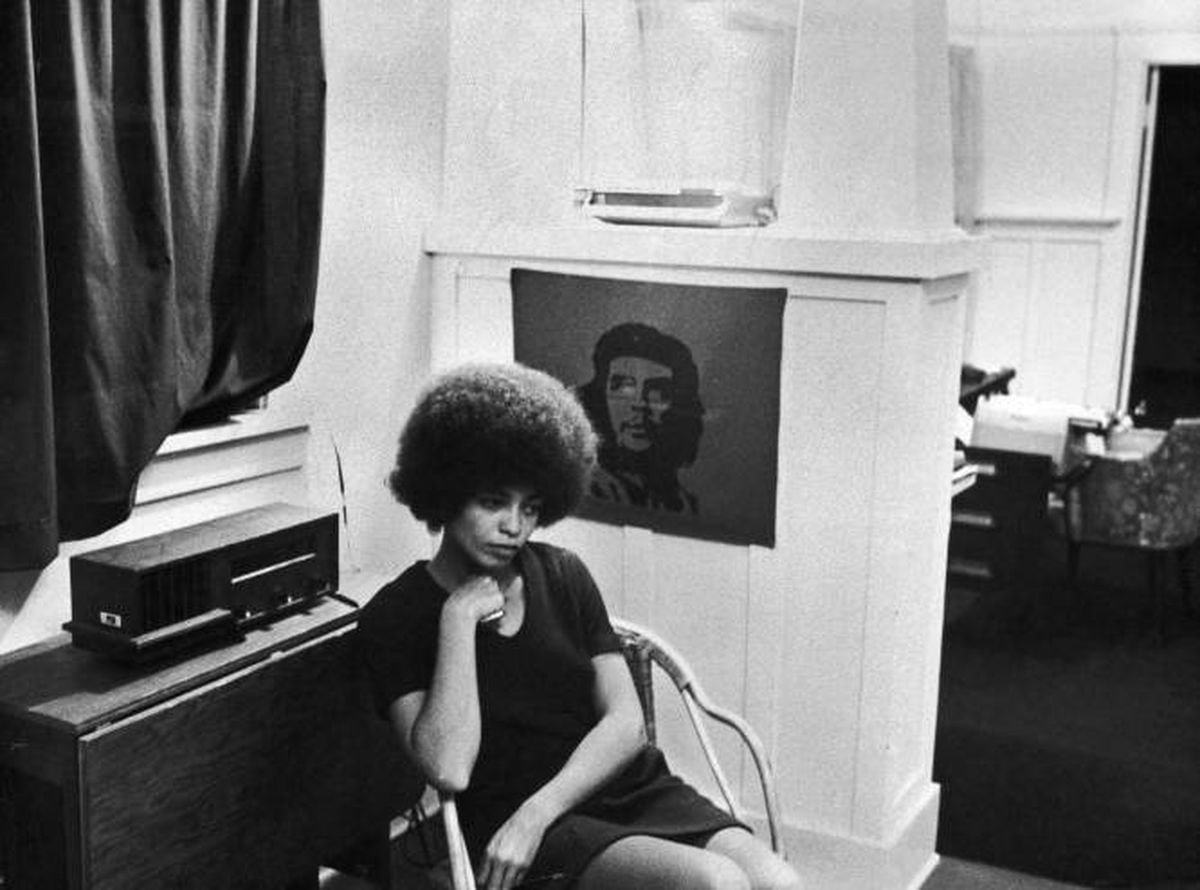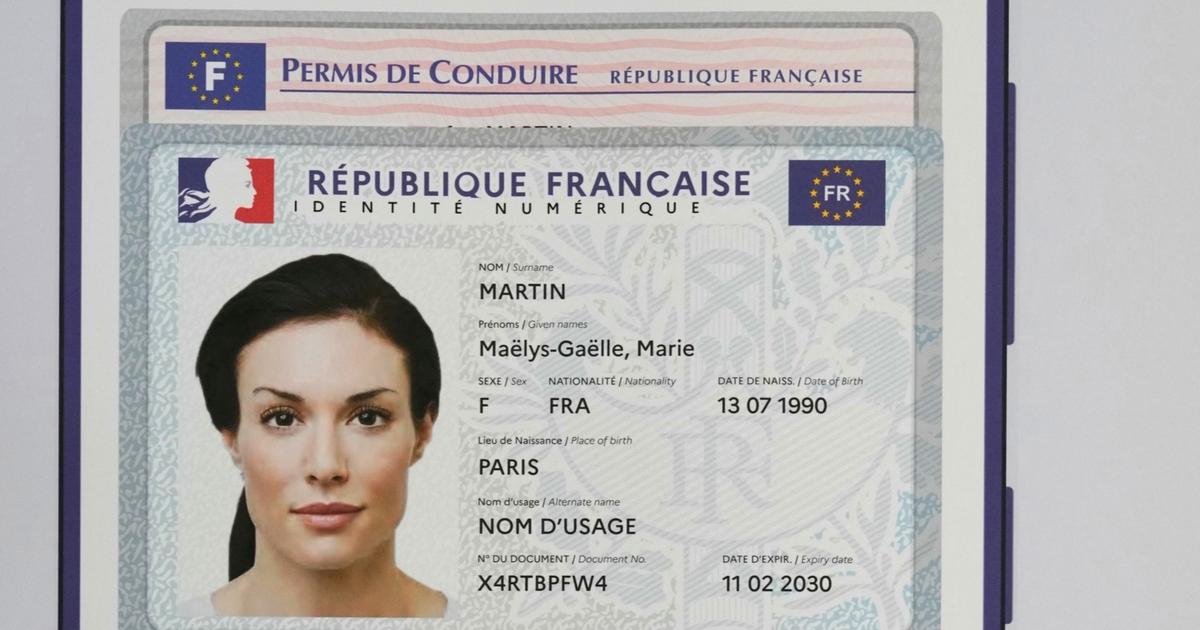Hong Kong has the world's number one dental school, but there are only 2,817 dentists in total, and more than 80% of them are practicing in the private market. Many grassroots elders have suffered from toothless and rotten teeth for a long time.
The Legislative Council earlier (January 11) passed the non-binding motion proposed by the Democratic Alliance for the Betterment of Hong Kong (DAB) Chan Hang-pin to "Comprehensively Review and Improve Hong Kong's Dental Service System and Manpower Needs". The private sector is unbalanced, and it is difficult to rely on public medical care to compete with the private sector.” However, oral health will be considered as a part of primary care and a feasible plan will be formulated.
Liu Xuelian, a community officer of the Federation of Trade Unions who is concerned about the inequality between public and private medical care, believes that the root of the problem lies in the severe shortage of dentists, and urges the government to formulate a "Ten-Year Dental Development Strategy" to provide citizens with basic, appropriate and high-quality dental care services.
Legislative Council Members' Bill Policy Analysis Series
Many organizations have asked the government to increase the number of public dental clinics.
(profile picture)
The supply of the public sector is in short supply, and
grassroots round-the-clock rounds
According to the Dental Council of Hong Kong, there are currently 2,506 general dentists and 311 specialist dentists in Hong Kong, that is, there are only about 3.7 dentists per 10,000 citizens, which is far behind the World Health Organization (WHO) data. 10000:5 population to dentist ratio in industrialized countries.
As of July 1, 2022, the Department of Health has a total of 312 dental staff - that is to say, only about 10% of dentists are practicing in public institutions.
However, due to the fact that dentistry has not been fully integrated into the public medical system in Hong Kong, currently 39 government dental clinics mainly provide services for civil servants and their families, and only 11 of them can provide emergency dental services for pain relief and tooth extraction to the public, which shows that grassroots resources are scarce There are very few of them.
In response to the motion debate on "Comprehensively Reviewing and Improving Hong Kong's Dental Service System and Manpower Needs", Director of the Medical and Health Bureau Lo Chong-mao said that there are currently nearly 70 vacancies for government dentists.
The supply of public services is in short supply and the distribution is uneven. Grassroots often need dental care across districts: Hong Kong Island, with a population of 1.22 million, has only one dental clinic providing street disease services; Kowloon has 2.27 million citizens, but there are only two in Kwun Tong and Hung Hom.
In addition, most clinics are only open to the public one to two days a week in the morning session, and 32 to 84 chips are distributed each time. It is no wonder that a large number of citizens, including the elderly, always wait all night and suffer from the wind and rain.
In order to prevent patients from queuing up overnight, the Department of Health implemented a "preliminary registration" arrangement in 6 clinics providing dental services for street diseases in September last year: from 0:00 am on the same day, patients only need to register their personal information and verify their identity You can leave the clinic and return to the clinic in the morning to formally collect the money.
The arrangement makes people laugh and cry. Liu Xuelian, the community officer of Tsz Wan Shan in Wong Tai Sin District of the Federation of Trade Unions, pointed out to the reporter of "Hong Kong 01": "How could you (the government) ask an elderly person living alone to collect money at 12 o'clock in the morning? Coupled with the current cold weather, The traffic in Tsz Wan Shan is inconvenient, (the elders) come back to sleep, and then go to see a doctor early in the morning, the situation is really not ideal." As for other clinics that do not have "preliminary registration" arrangements, other district councilors have reported that there are still Many citizens arrived outside the basement gate of the community complex building in the early hours of the morning, waiting for the distribution of chips in the morning.
Most government dental clinics are only open to the public one to two days a week in the morning session, and they distribute 32 to 84 chips each time, which is in short supply.
(Source: Department of Health website)
High private costs delay
elders seeking medical care
"We want to stress that there is an imbalance between the public and the private sector, and it is difficult for the public sector to use money to compete with the private sector." At the meeting, Lu Chongmao admitted that public and private resources are not balanced, and he also agreed with the proposal of a number of congressmen to "dedicated funds" for dental care. To encourage the elderly to pay attention to dental care as soon as possible, "It's like a car that can be repaired regularly, so you don't have to wait for it to break down or even crash."
Chief Executive Lee Ka-chao announced in his "Policy Address 2022" that the elderly care vouchers will be increased from $2,000 to $2,500 per year.
The elderly can take this opportunity to go to private dental service centers for dental checkups, scaling, extraction and filling of teeth, etc.
However, Liu Xuelian believes that the price of private clinics is high, and it costs 700 to 800 yuan for teeth cleaning alone. If it is more complicated, for example, wearing removable plastic teeth will start at 4,000 yuan, and dental implants will cost tens of thousands of yuan, far exceeding the burden of the grassroots. Mere medical vouchers are just a drop in the bucket.
Therefore, unless the pain is unbearable, many elders prefer to spend their medical vouchers on other purposes.
It is undeniable that the SAR government does not provide the elderly at the grassroots with a total amount of subsidy for dental services, and it can even be described as various. However, relevant measures have been criticized from time to time for not being in place.
Taking the "Dental Service Subsidy for the Elderly" project funded by the Community Care Fund launched by the government in 2012 as an example, eligible elderly people will be provided with a removable denture and other related services free of charge.
Liu Xuelian observed that there are mainly two types of elderly people who will participate in the relevant projects, but the service effect is not satisfactory: one type uses the quota only once when they reach the age of 65, so that after a few years, the old dental disease relapses or there are other problems, they can no longer use it ; another type of elders are very frugal, and wait until the teeth are severely decayed to use the quota, but the optimal time for treatment has already been missed.
In fact, many grassroots elders mostly lack dental care awareness and service information.
According to the Oral Health Survey Report of the Grassroots Elders published by the Hong Kong Association for Community Organization and the Hong Kong Elderly Rights Alliance in 2021, 76% of the eligible elderly have never used the dental service subsidy from the Community Care Fund; and about 20% of the respondents indicated that they were Because the fund can only be applied for once, they dare not act rashly, and 24% of the elderly interviewed said that they do not know or do not know how to apply.
In addition, the Department of Health published the "Oral Health Survey" in 2011, and found that less than half of the non-institutional elders had consulted a dentist when they had oral symptoms; Visit a dentist; if the symptoms are mild, such as bad breath and bleeding gums, more than 95% of the elderly will delay seeking professional dental treatment.
Liu Xuelian, community officer of Tsz Wan Shan in Wong Tai Sin District, said that the medical voucher scheme for the elderly is just a drop in the bucket and not enough for grassroots elders to afford the high dental fees.
(Photo by Luo Junhao)
Adhere to private leadership and
how to treat symptoms and root causes
In order to meet the public's keen demand for public dental services, several councilors suggested that the government introduce non-local dentists, train dental therapists, increase dental degrees, etc.
Liu Xuelian also believes that only when the manpower is sufficient, private prices will drop.
To this, Lu Chongmao responded: "To increase the service volume, we must not only walk on two legs, but also walk on multiple legs, and walk on several legs together. The more the better, we must use multiple approaches." First, teach The number of bachelor's degrees of dentistry funded by the Foundation will increase from 80 to 90, that is, 400 new dentists will enter the service in the next five years; secondly, the Dental Academy will increase 10 places to train more dental specialists ; thirdly, the authorities are studying the introduction of non-locally trained dentists, and it is expected to submit legislative proposals to the Legislative Council within this year; fourthly, consider requiring newly graduated and non-locally trained doctors to serve in public hospitals for a certain period of time; finally, strengthen the training of auxiliary dental medical personnel, Includes dental therapists and dental hygienists.
However, the authorities still have no intention of integrating dentistry into the public healthcare system.
Lu Chongmao just reiterated that the dental policy emphasizes that "prevention is better than cure" and encourages the public to prevent dental diseases, rather than investing a lot of resources to provide free dental services.
For example, raising public awareness of oral hygiene and health through publicity and education, providing dental care for school children in Hong Kong, expanding the "Dental Outreach Service Program for the Elderly" to provide free oral examination and dental treatment services for the elderly living in residential care homes and other places .

